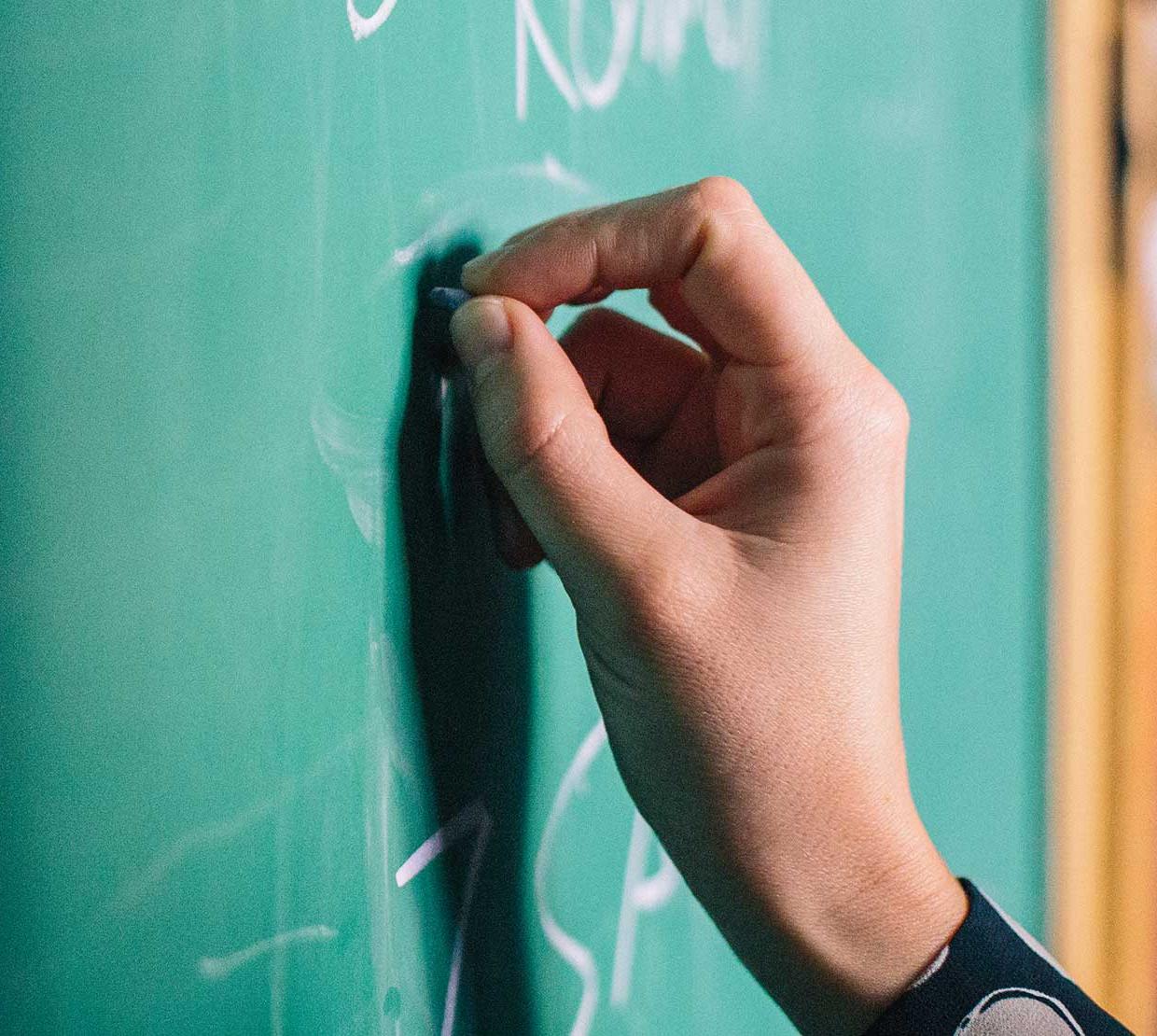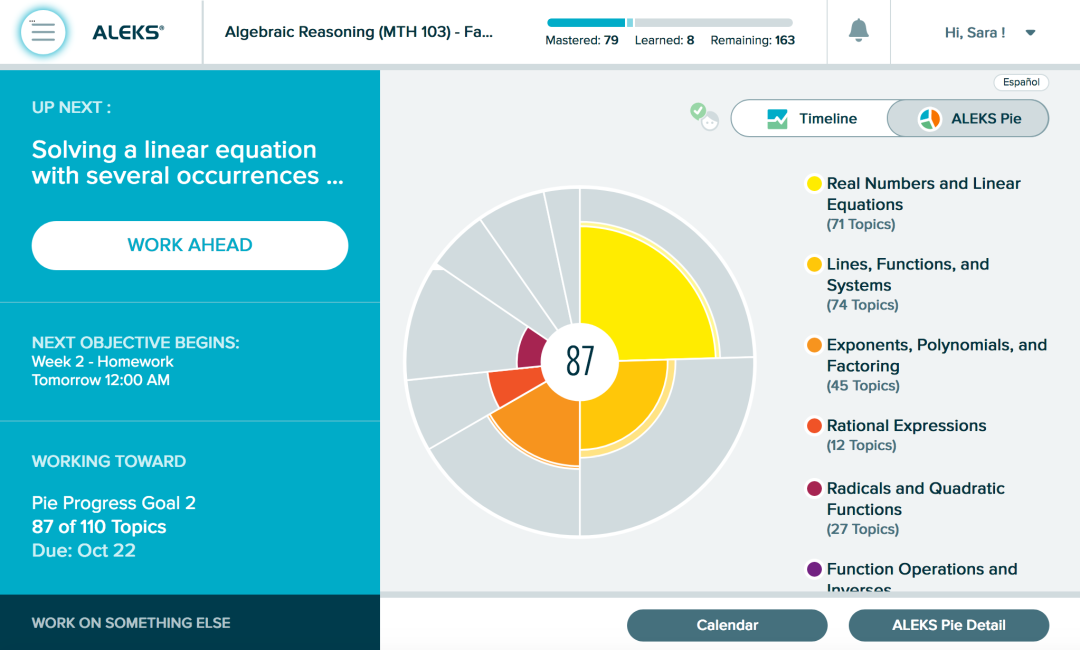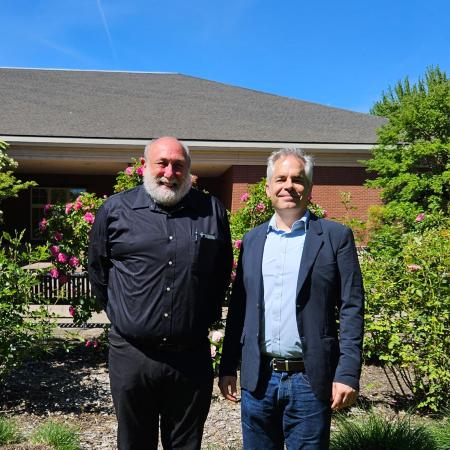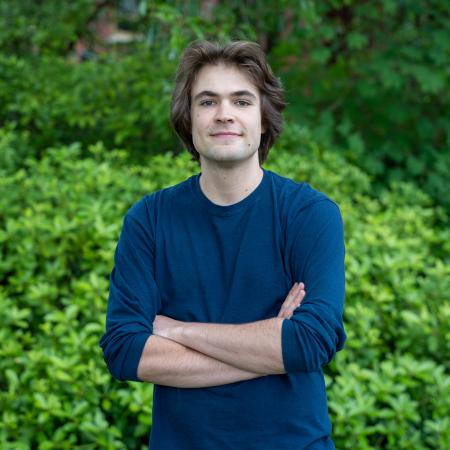College of Science mathematics faculty are replacing the traditional classroom model to improve student success in introductory algebra courses through technology, new active learning approaches and measurement of student performance and understanding. These have improved retention, performance and student engagement in 100- and 200-level mathematics classes at OSU.
The greatest need: Teaching innovations in college algebra
Failure rates in College Algebra courses are high across the country and present significant barriers to earning STEM degrees because mathematical sciences courses in the first two years of college function as pathways for many different science and engineering majors. According to a report, "Common Vision" from the Mathematical Association of America (MAA), 50 percent of students earn a grade lower than C every year in the United States. This sort of poor performance in gateway or general introduction courses such as college algebra not only has a hugely detrimental effect on students' performance in their first two years of college, but also has lasting negative repercussions beyond college, since failure to obtain a degree in science or engineering prevents graduates from getting higher paying jobs.
Finding the status quo unacceptable, universities and colleges are pushing forward with large-scale implementation of modern instructional and delivery methods. Modernized pedagogy in mathematics departments currently involves using innovative instructional technology that enhances learning in ways not supported by the traditional classroom. And for good reason. The same MAA report finds that "failure rates under traditional lecture are 55 percent higher than the rates observed under more active approaches to learning."
Through the use of adaptive courseware—a personalized learning tool that students can use to review, practice and develop the requisite mathematical skills for a particular course—mathematics instructors have implemented bold new solutions that will help OSU students succeed in math.
OSU is one of just eight universities awarded funding from a Gates Foundation grant through the Association of Public and Land-Grant Universities (APLU). This grant supports the implementation of adaptive courseware in high enrollment general education courses, including College Algebra/Math 111.
Mathematics instructors Sara Clark, Scott Peterson, Lyn Riverstone, Dan Rockwell, Katy Williams, David Wing and Elizabeth Jones of the Equal Opportunities Program--known as Team Math--spent more than 300 hours across several months working together to re-design College Algebra. To ensure the use of best practices that lead to student success, the team worked closely with OSU’s Center for Teaching and Learning, Ecampus, Academic Technologies and the Academic Success Center, and engaged numerous instructors in biology, physics and chemistry who are models of innovative practice. The team piloted the redesign in five sections of Math 111 in spring term 2017.
Comparative results from Fall 2016 to Fall 2017 are encouraging, revealing clear drops in DFWU rates (grades of D, F, Withdrawal or Unsatisfactory) in both Math 103 (Algebraic Reasoning) and Math 111 (College Algebra).
- MTH 111 (Corvallis): 34.9% to 27.5% (7.4% drop)
- MTH 111 (online): 67.3% to 43.9% (23.4% drop)
- MTH 103 (Corvallis): 32.9% to 19.3% (13.6% drop)
The videos below feature members of Team Math describing the process and experience of the Math 111 redesign.
College Algebra Redesign with Adaptive Courseware: A Blended, Active, and Adaptive Course
College Algebra Redesign with Adaptive Courseware: The Course Redesign Experience
There was a healthy precedent for introducing innovations to the teaching of college algebra. Instructor Sara Clark, with the help of a Digital Learning Award from the Bill and Melinda Gates Foundation-supported Online Learning Consortium, has already implemented a similar online adaptive program in her developmental math courses and obtained highly successful results.
Online learning platform
Adaptive courseware in Math 111 involved using Learning Catalytics, a web-based student response tool, and Assessment and Learning in Knowledge Spaces (ALEKS), an adaptive courseware platform. These tools allow instructors to adapt to student needs both inside and outside of class.
Students can register for Learning Catalytics right from their smartphones, iPad, tablets or laptops. Learning Catalytics acts as a type of clicker that tabulates responses to problems posed in class. As with a traditional clicker system, Learning Catalytics allows for multiple choice, short or long answer types of questions, but also includes graph sketching, ranking, and mathematical expressions.
Learning Catalytics helps the instructor monitor student responses to questions and determine where they are struggling with the help of real-time analytics. Instructors also use the software to promote interaction by grouping students who have different answers. The result is a highly energized class excited by mathematical challenges.
“We were inspired to adopt this tool after visiting Physics Instructor KC Walsh’s class,” said Riverstone. “He teaches in a big lecture hall and the class just explodes. Students turn around, face each other and start discussing the question. There is a lot of problem-solving, discussion, critiquing and mutual guidance.”
ALEKS is the adaptive courseware that students use outside of class to check on their prerequisite knowledge and get up to speed on the topics they need to be successful in class. ALEKS provides individualized pathways for students to learn foundational content through an initial knowledge check and regular assessments throughout the term to learn what each student knows, and then supplies explanations and practice exercises only on content the student is ready to learn. Students who already know a topic will not need to relearn it in ALEKS, whereas students who are struggling will first work through any prerequisites needed to be successful on the more difficult topic.





